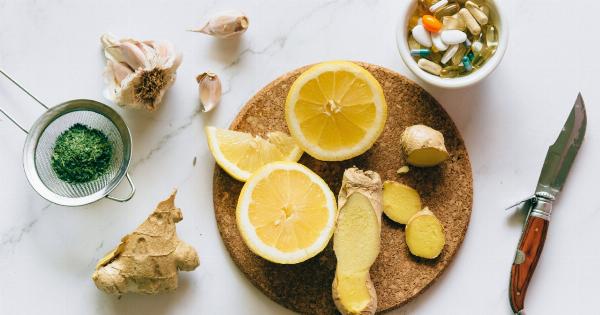The flu virus is a highly contagious respiratory illness that can cause debilitating symptoms such as fever, fatigue, cough, sore throat, and body aches.
It can be especially dangerous for young children, the elderly, and people with weakened immune systems.
While modern medicine has developed medications to reduce the severity of flu symptoms and vaccines to prevent infection, there are also natural remedies that can help boost the immune system and fight the flu virus.
One of the most powerful of these natural remedies is the herb called Echinacea.
What is Echinacea?
Echinacea is an herb that comes from the daisy family. It is native to North America and has been used for centuries by Native American tribes for its medicinal properties. Echinacea is also known as the purple coneflower due to its vivid purple blooms.
Echinacea is available in many forms, including teas, capsules, extracts, and tinctures. It is known for its powerful immune-boosting properties, as well as its ability to fight off bacterial and viral infections.
How does Echinacea fight the flu virus?
Echinacea works by stimulating the body’s immune system. It contains compounds called polysaccharides and glycoproteins that activate white blood cells, which are the body’s defense against infections.
When the body is infected with the flu virus, white blood cells are activated to fight the infection. Echinacea helps to increase the number of white blood cells, as well as their effectiveness in fighting the virus.
Echinacea also contains compounds called alkamides, which have been shown to have antiviral properties. These compounds can help to prevent the flu virus from replicating and spreading throughout the body.
Is Echinacea effective against all strains of the flu virus?
While Echinacea has been shown to be effective against many strains of the flu virus, it may not be effective against all strains. The effectiveness of Echinacea can also vary depending on the form in which it is taken.
Studies have shown that Echinacea may be most effective when taken in the form of a tincture or an extract. These forms allow for the highest concentration of active compounds, which can help to boost the immune system and fight the flu virus.
What are the other benefits of Echinacea?
In addition to its immune-boosting and antiviral properties, Echinacea has many other health benefits. These include:.
- Reducing inflammation
- Lowering blood sugar levels
- Improving skin health
- Reducing anxiety and stress
Echinacea is also rich in antioxidants, which can help to protect the body against damage from free radicals.
Free radicals are unstable molecules that can damage cells and contribute to the development of chronic diseases such as cancer, heart disease, and Alzheimer’s disease.
How can Echinacea be taken?
Echinacea is available in many forms, including:.
- Teas
- Capsules
- Extracts
- Tinctures
Teas are the most common form of Echinacea and can be found in most health food stores. Capsules and extracts are also widely available and can be found online or in health food stores.
Tinctures are a highly concentrated form of Echinacea and are often used for acute illnesses such as the flu. Tinctures are made by soaking Echinacea in alcohol for several weeks to extract the active compounds.
Tinctures can be found in health food stores or can be made at home using dried Echinacea and high-proof alcohol.
Are there any side effects of taking Echinacea?
Echinacea is generally safe for most people when taken in recommended doses. However, some people may experience mild side effects such as:.
- Upset stomach
- Dizziness
- Headache
- Allergic reaction
People with certain medical conditions or who are taking certain medications should consult with their doctor before taking Echinacea.
Conclusion
Echinacea is a powerful herb that can help to boost the immune system and fight off the flu virus.
It has been used for centuries by Native Americans for its medicinal properties and has been shown to be effective in reducing the severity and duration of flu symptoms.
While Echinacea is generally safe for most people, it is important to consult with a doctor before taking it, especially if you have a medical condition or are taking medications.
Echinacea is available in many forms, including teas, capsules, extracts, and tinctures, and can be found in most health food stores.
Adding Echinacea to your daily routine can help to keep your immune system strong and healthy, and may even help to prevent the flu virus from infecting you.































